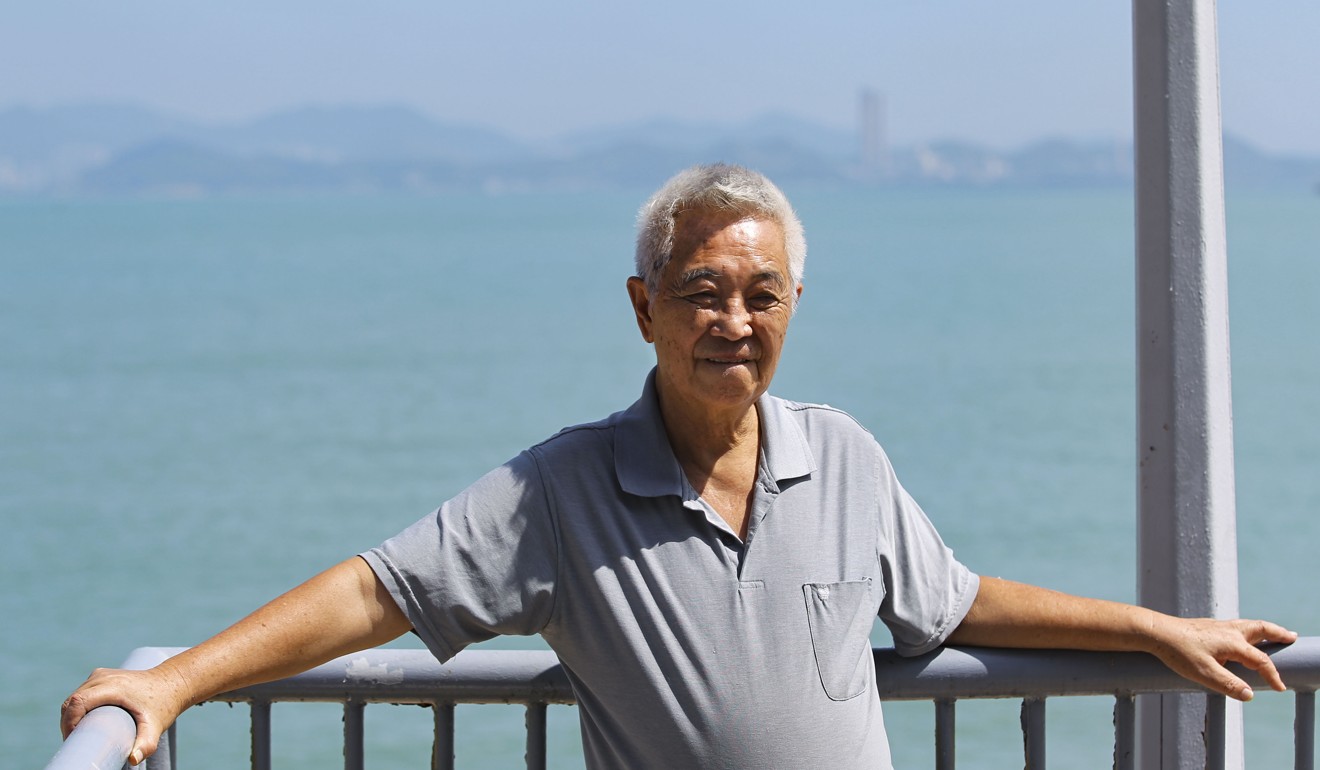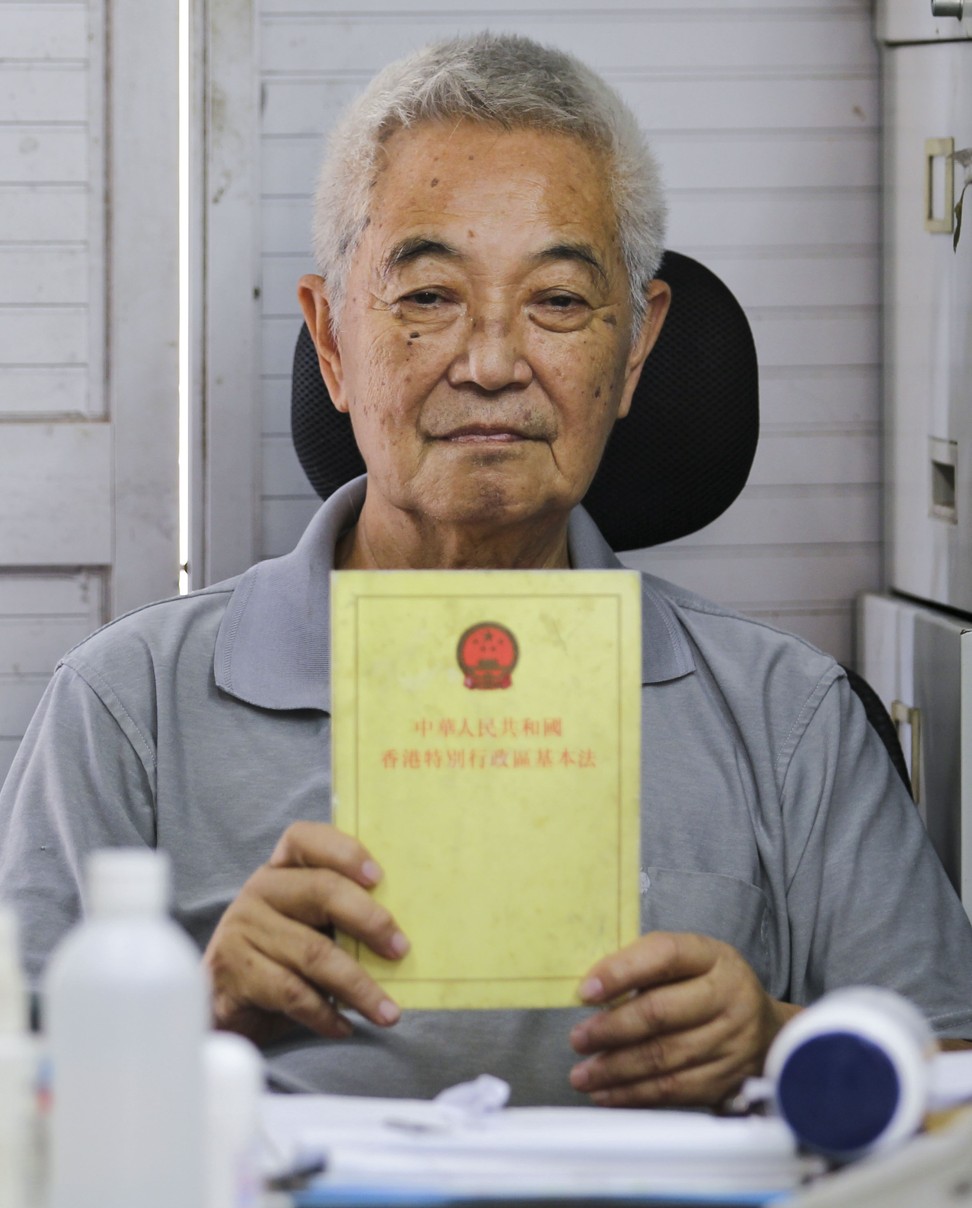
Hong Kong ‘king of judicial reviews’ to quit city and legal battles after HK$40 million in fees and just one win
Last challenge likely to carry on two more years for retiree who has filed more than 30 since 2006
After losing all but one of more than 30 legal challenges against policies he thought unfair and having incurred HK$40 million in fees, Hong Kong’s “king of judicial reviews” has decided to call it a day.
But Kwok Cheuk-kin, 78, said it was more his disappointment in Hong Kong’s judicial system and government than his repeated failures and debts that had made him decide to emigrate to Britain after his final campaign ends, likely in two years’ time.
“I’ll stay for the legal fight against the small-house policy,” he said. “It will be my last battle.”

Since 2006, Kwok has filed more than 30 judicial reviews against government policies and decisions that he found unjust. He won only once: a case involving a public area in Cheung Chau, where he lives, that was being used as a temporary funeral parlour.
The retiree claimed that losing so many cases did not mean “total failure” because people learned through legal proceedings “what the government had done wrong”.
Kwok, formerly a government clerk and law firm employee, said he owed a total of about HK$40 million in legal costs to the government and now relied on some HK$3,000 per month in elderly allowance.
Hong Kong ‘king of judicial reviews’ faces legal aid ban after 21 applications in three years
He revealed he could not repay the debt and that “in the worst case scenario” he would declare bankruptcy.
Hong Kong opposition filibuster blocks Lam’s plan for Legco to prioritise joint checkpoint debate
Kwok accused the court of “moving the goalposts” in handling his challenge.
People should not remain silent on mistakes and injustice
“The judge rejected my application for leave, saying the proposal was non-binding so there was no sufficient grounds to grant a judicial review,” he said. “But the judge could also say the court has no right to review the arrangement after it’s approved by Beijing.”
Kwok added he was frustrated by a government approach he described as high-handed, noting how it hired top-notch barristers in a separate recent case while he only relied on legal aid until four months ago, when all his resources were exhausted.
The Legal Aid Department told the retiree he would be barred from qualifying for help for three years. It said he abused legal procedures.
But Kwok disagreed with that characterisation.
Reflecting on his experiences, the Cheung Chau native said: “People should not remain silent on mistakes and injustice. If I didn’t speak up, who should I have expected to do it for us?”
However, Kwok warned young Hongkongers to think twice before following his example.
“Young people have to think about their families and their future because challenging the government could make them vulnerable and risk losing everything they’ve got.”
The causes Kwok championed ranged from fighting ferry fare rises to challenging the legality of oaths taken by the former and current chief executives as well as some lawmakers’ qualifications.
His last battle centres on the city’s small-house policy and pits him against rural power broker Heung Yee Kuk, a body that looks after the interests of indigenous New Territories residents. The policy allows male, adult indigenous villagers to build and sell three-storey houses within a recognised New Territories village or on agricultural land.
Hong Kong government spends HK$15 million on judicial reviews in last fiscal year
No matter the outcome of his final challenge, the retiree said he would be leaving Hong Kong.
“When the gavel comes down on this case I will be heading to the United Kingdom, joining a friend who is doing business there.”


